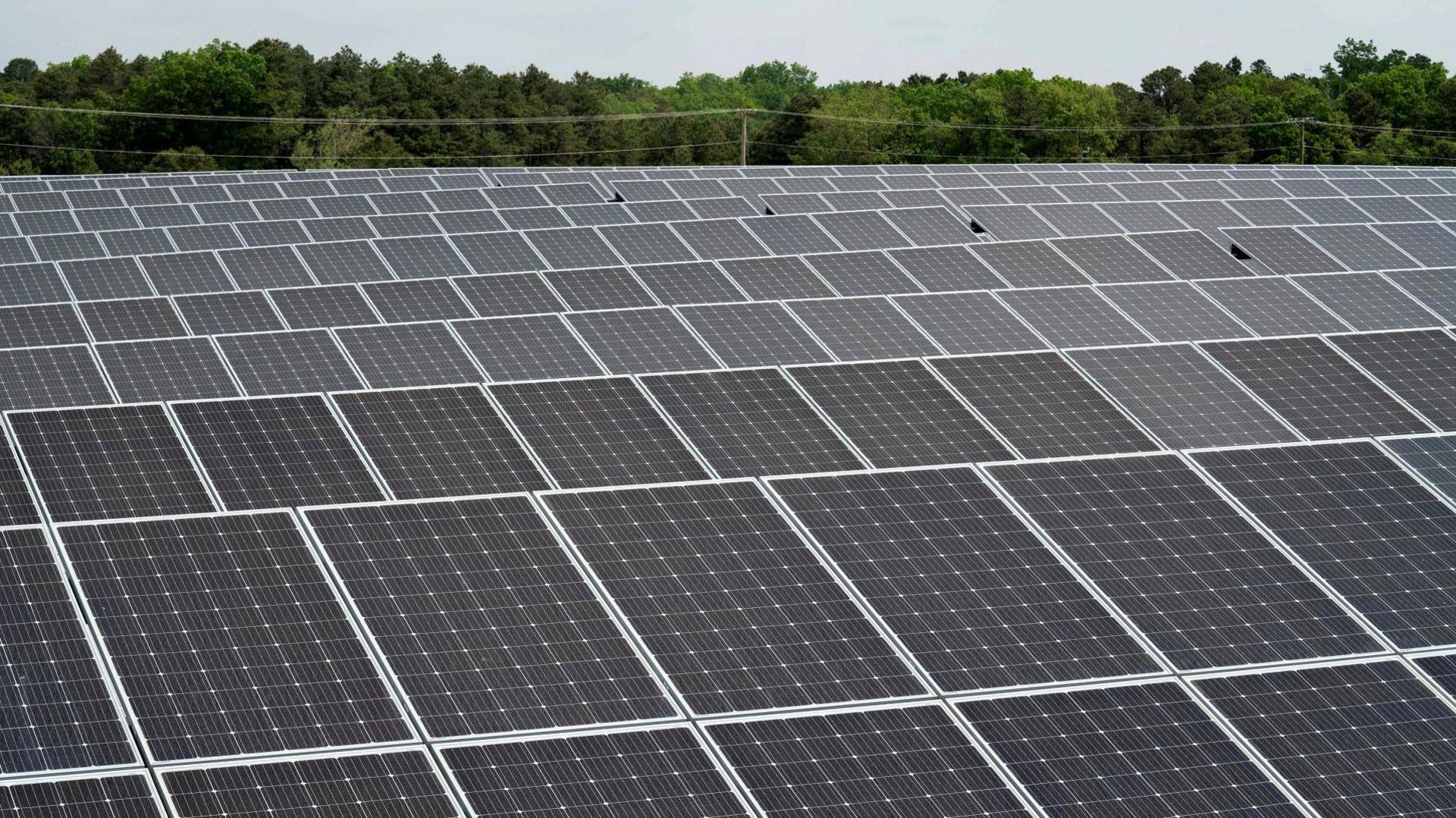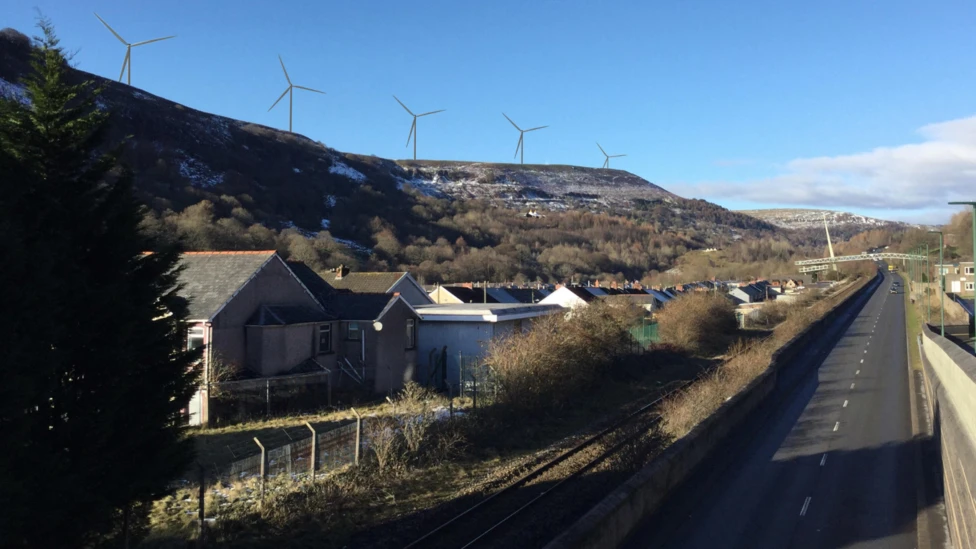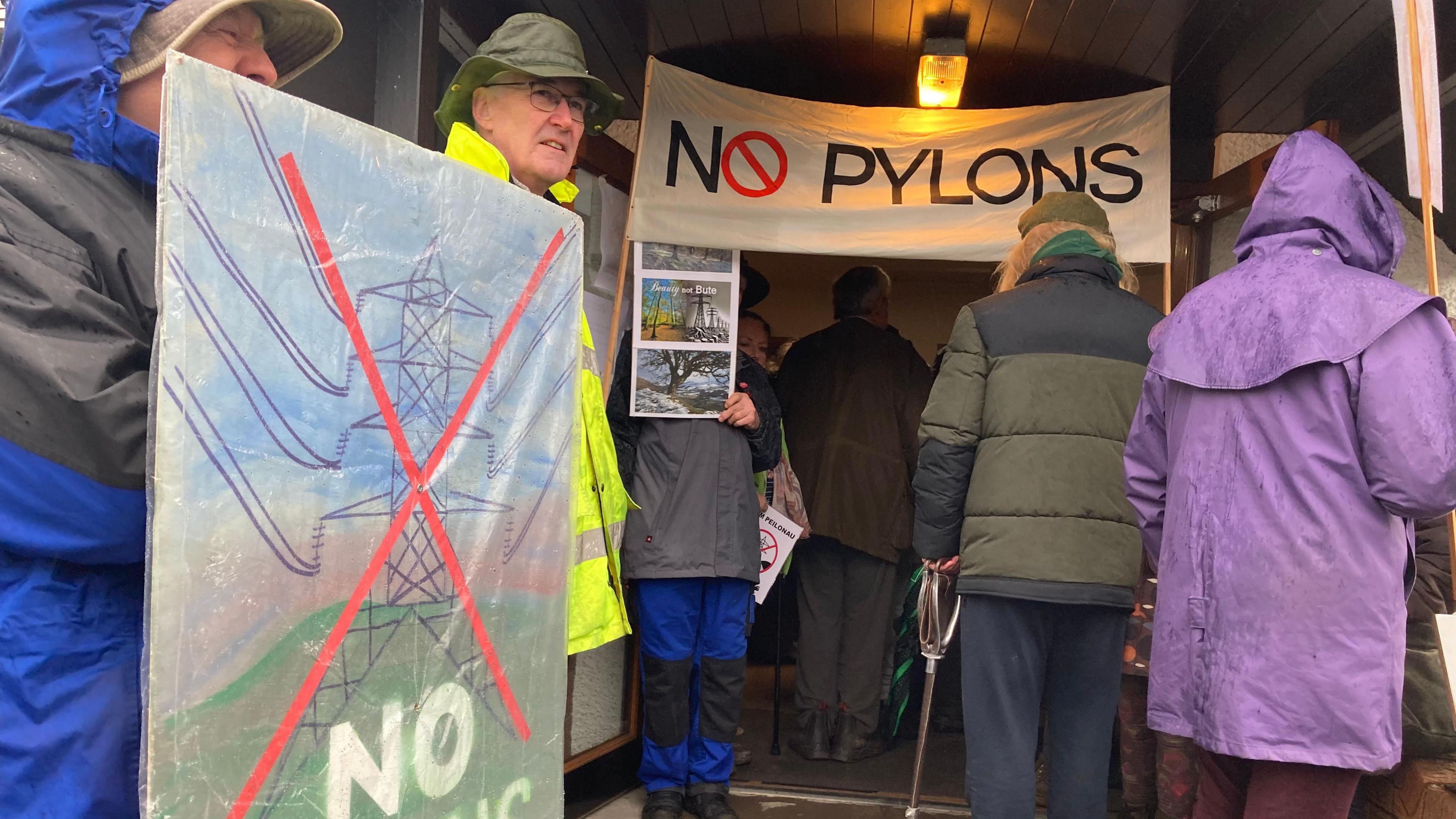Plans to speed up decisions on wind and solar farms

The Welsh government has said speeding up planning decisions for new renewable energy schemes is one of its top priorities.
- Published
Changes to the planning system for renewable energy schemes in Wales have been proposed in a bid to speed up the process of getting them built.
Decisions on schemes up to 50MW will no longer have to be referred to ministers for final approval.
Size-wise, this could encompass a wind farm with more than ten turbines or a solar farm covering more than 100 acres (40 hectares) of land.
Energy Secretary Rebecca Evans said delegating decisions to government planning inspectors would cut waiting times by several months.
New wind farm gets green light despite objections
- Published17 October 2024
Four times more wind power needed to hit net zero
- Published7 November 2023
Claim wind and solar may industrialise rural Wales
- Published12 August 2023
It follows recent criticism from the industry over how long it was taking to give new onshore windfarms the green light.
But the move is likely to prove controversial in communities concerned about the visual impact of more energy developments and pylons.
The Campaign for the Protection of Rural Wales said the announcement amounted to "the removal of democracy".

Plans to build five 180m (590ft) high wind turbines on land at Cefn Manmoel common near Ebbw Vale, Blaenau Gwent, are among those to have received the green light in recent months by the Welsh government.
In a speech to renewable energy developers at a conference in Newport, Ms Evans said improvements to the planning system were needed if Wales was to deliver green jobs and meet climate targets.
The big change announced was a proposal for Planning and Environment Decisions Wales (PEDW) - the government's arm's length planning inspectorate - to take final decisions on renewable energy projects up to 50MW in future.
Currently the inspectors assess an application and provide a recommendation for ministers, who then mull it over themselves.
Ms Evans said "delegating decision-making powers to PEDW" for schemes of this size would "significantly reduce the end-to-end decision time, sometimes by several months".
“Accelerating infrastructure planning decisions is one of the Welsh Government’s top priorities - we need to make it as efficient as possible for all concerned," she said.
Plans were set out too to "address the shortage of planners at both local and national levels".
A "wide-ranging consultation" was to be launched on "ensuring that Wales has enough planner and related professionals, with the right skills in the right areas," she confirmed.
Ms Evans said that five major renewable energy schemes had been approved since her appointment in September, capable of producing enough clean power for more than 180,000 homes.
Five more applications were under “active consideration” after PEDW inspector reports had been received, with a further 15 at “various stages of acceptance and examination”.
"We all want to see a well-resourced, progressive planning system and that's exactly what these proposals will help deliver," she said.
Bute Energy, which is planning 16 onshore wind projects across Wales, said it welcomed the announcements.
Managing Director, Stuart George, said: “£47bn could be invested in Wales through renewable energy projects by 2035.”
"For communities to really see benefits of that potential investment, the planning system needs to be properly resourced and provide clarity and certainty for communities and developers," he said.

The Campaign for the Protection of Rural Wales said they were "stunned" by the proposals.
But Dr Jonathan Dean of the Campaign for the Protection of Rural Wales said he was "stunned" by the announcement and called it "a bad day for democracy".
"Whether a minister or a council committee we have always had some form of democratic input to planning decisions," he said.
"Delegating to civil servants starts us on a slippery slope".
"Watch out Wales, the wind farms are coming," he added.